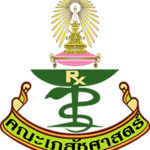Understanding Acid Reflux and Its Medication

Understanding Acid Reflux and Its Medication: Insights from Chula Pharmacists
Continuing from last week's discussion on acid reflux, a condition largely caused by the sufferer's lifestyle, behavioral adjustments play a crucial role in its treatment. However, while these changes take effect, medications are often necessary to manage the symptoms.
Common medications for treating acid reflux include antacids, gastrointestinal motility stimulants, stomach pain relievers, anti-flatulence drugs, digestive aids, and anti-nausea medications.
Understanding how these drugs work and knowing the precautions associated with their use is vital for ensuring effective treatment. This knowledge helps patients manage the condition, allowing them to recover and improve their quality of life during and after treatment.
Medication for Acid Reflux
Treatment for GERD (Gastroesophageal Reflux Disease) usually starts by reducing excess stomach acid. The primary medications used for this purpose are antacids, which come in two main categories:
Antacids that neutralize stomach acid – These are commonly available as chewable tablets or liquid suspensions. This group of medications is typically taken after meals when stomach acid is most active. Although these drugs work locally and are minimally absorbed into the bloodstream, certain precautions apply. For example, patients with severe kidney failure should consult a doctor or pharmacist before using them. Side effects may include constipation or diarrhea, but overall, they are considered safe for the general public.
Acid secretion inhibitors – These drugs, popular in Thailand, have special coatings that ensure they dissolve in the intestines before being absorbed into the bloodstream to reduce acid secretion. It’s essential to take these medications before meals and avoid taking them with milk or antacids, as this can prevent the medication from reaching the intestines intact. Patients should not crush or chew these tablets to preserve their effectiveness. If swallowing is difficult, patients should consult a healthcare professional about safe alternatives like dissolving the tablets in water.
Additional Medications
Some acid reflux patients may also require medications that stimulate gastrointestinal contractions. These are generally safe, but people with heart conditions should be cautious. This is because such medications can cause abnormal electrocardiograms. Heart patients should always consult a doctor before using them.
Key Takeaways
In summary, the main medications for treating acid reflux include two primary groups: antacids and acid secretion inhibitors. These may sometimes be combined with other medications like gastrointestinal stimulants. There are several precautions to consider when using these drugs, and it's crucial to carefully follow instructions provided by pharmacists for optimal treatment results.
It is also important to remember that, in addition to medication, lifestyle and dietary changes are essential components in managing and treating acid reflux effectively.
Assoc. Prof. Dr. Nattada Areepiam and Assoc. Prof. Dr. Bodin Tiwasuwan
Faculty of Pharmacy Chulalongkorn University
เราใช้คุกกี้เพื่อพัฒนาประสบการณ์การใช้งานเว็บไซต์ของคุณให้ดียิ่งขึ้น คุณสามารถจัดการความเป็นส่วนตัวของคุณได้เองโดยคลิกที่ ตั้งค่า
